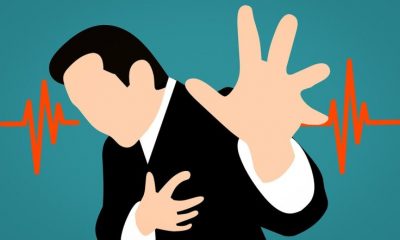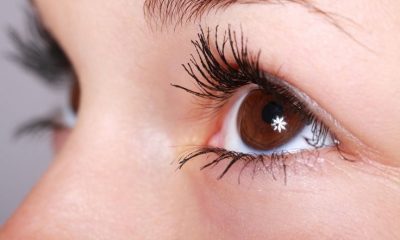This June 27, we’ll be observing PTSD Awareness Day. PTSD (Post-Traumatic Stress Disorder) is a complex condition usually caused by a terrifying event – either experiencing it or witnessing it. As such, getting effective treatment for PTSD is crucial to reducing its symptoms. Here are six ways to help people recover from PTSD.
What is PTSD?
PTSD is an invisible monster. It disguises your reality and alters your perception, making it hard to distinguish what’s real from what isn’t while also making you fear for your safety. Most people who experience PTSD because of a traumatic event may have difficulty coping and may experience symptoms like insomnia, flashbacks, low self-esteem and unpleasant emotions.
In the U.S. alone, around 3.5% of the population or approximately 8 million Americans, suffer from this mental health condition in a given year. Studies have also shown that 67% of people exposed to mass violence develop PTSD, which is higher than those who were exposed to natural disasters or other traumatic events.
This is why every year, on June 27, we try to spread awareness about PTSD. Recently, the senate has dedicated the month of June as National PTSD Awareness Month.
PTSD Recovery
While millions of Americans suffer from this condition, PTSD is now considered largely treatable, thanks to self-care, time, therapy and medication. Here, we have listed down six ways to help anyone recover from PTSD and enjoy a better way of life:
1. Challenge Your Sense of Helplessness
When someone suffers from PTSD, they are more likely suffering from a sense of helplessness or the feeling that they are powerless and vulnerable. However, it’s important to remind one’s self that helplessness is a by-product of the condition and that we always have the strength to make things better.
One of the best ways to reclaim one’s sense of power and purpose is by helping others, whether it’s through volunteer work, donating to a charity, joining a support group or just spending time with loved ones. The key here is to counter one’s helplessness with positive action that will challenge those feelings, helping you realize that you’re stronger than what your condition is telling you.
2. Get Moving
Another way to help you recover from PTSD is to simply start moving. More than the fact that exercising is a healthy habit and it can release endorphins that will make you feel better, moving will also help your nervous system become “unstuck.” This would then help it ease out of the immobilization stress response.
If you’re looking for great exercises to manage your PTSD, you can opt for rhythmic exercises that engage your arms and legs, like walking or running. Activities like rock climbing or weight training will also help you shift your focus onto your body movements since you can get hurt if you don’t. If it’s too stressful, then opt for simpler exercises like swimming, hiking, camping or just immersing yourself in nature. Anyone with PTSD can always benefit from the calm and serenity that nature brings.
3. Supplement it with a Healthy Lifestyle
While PTSD is a mental health condition, its symptoms can also be hard on your body. As such, it’s important to take care of yourself and develop good habits that will benefit you long after you’ve recovered from PTSD.
The easiest way to do this is by following a healthy diet, such as eating balanced, nutritional meals all throughout the day. For example, omega-3s play an important role in your emotional health and you can get these by eating flaxseed, walnuts and fatty fish like salmon. Make sure you limit your intake of processed food and try to get between seven to nine hours of sleep every night. Substance use also worsens many PTSD symptoms, as well as interfere with any treatment, so avoid alcohol and drugs.
4. Get Professional Help
Another solution is to seek professional help. The sooner PTSD is treated, the sooner you can overcome it. If you’re feeling reluctant to seek professional help, keep in mind that your condition is not a sign of weakness, but a condition that can be treated.
Since this process is done under the guidance of a therapist or doctor, we recommend trying Cerebral, a mental health tool providing medication management and online counseling services. By signing up with Cerebral, you’ll be matched with a care counselor or therapist that will offer emotional support and track your progress. A medical provider will also prescribe needed medication that will get delivered right to your doorstep.
With Cerebral, mental health care is now much more accessible and affordable. You may learn more about this telehealth company by clicking here.
5. Medication
As people with PTSD have neurotransmitters in their brains that are out of balance, their brains tend to process “threats” differently, resulting in being jumpy and on-edge. If you’re suffering from this, your “fight or flight” response is easily triggered and constantly trying to stop it can make you seem distant.
In such cases, medication can help you stop thinking about past events, as well as help give you a more positive and “normal” outlook in life. As for where to get the right medication, Cerebral will provide you with all the help you need. It also offers telehealth and counseling services for people suffering from other mental health conditions like trauma, depression and anxiety.
By signing up with Cerebral, you will be assigned a therapist, as well as a medical provider who will prescribe you the medication you need and deliver it straight to your home. To help you save money, Cerebral also prescribes the generic version of any treatment. If the provider feels that it’s appropriate to do so, they can also prescribe additional, as-needed medication. Click here to get started with Cerebral.
6. Try Mindful Meditation
A number of studies suggest that meditation can help reduce the symptoms of PTSD. Such studies show that mindful meditation can help reduce stress hormones by calming our sympathetic nervous system, which is in charge of our “fight or flight” response. An increase in mindfulness can also help individuals better cope with intrusive and helpless thoughts.
While there are many meditation apps available, we recommend Waking Up. Developed by neuroscientist, philosopher and author Sam Harris, Waking Up not only helps you practice meditation but even learn the theory behind it, as well as the wisdom and ethical insights. Learn more about Waking Up by clicking here, or take advantage of their free trial by clicking here.






















